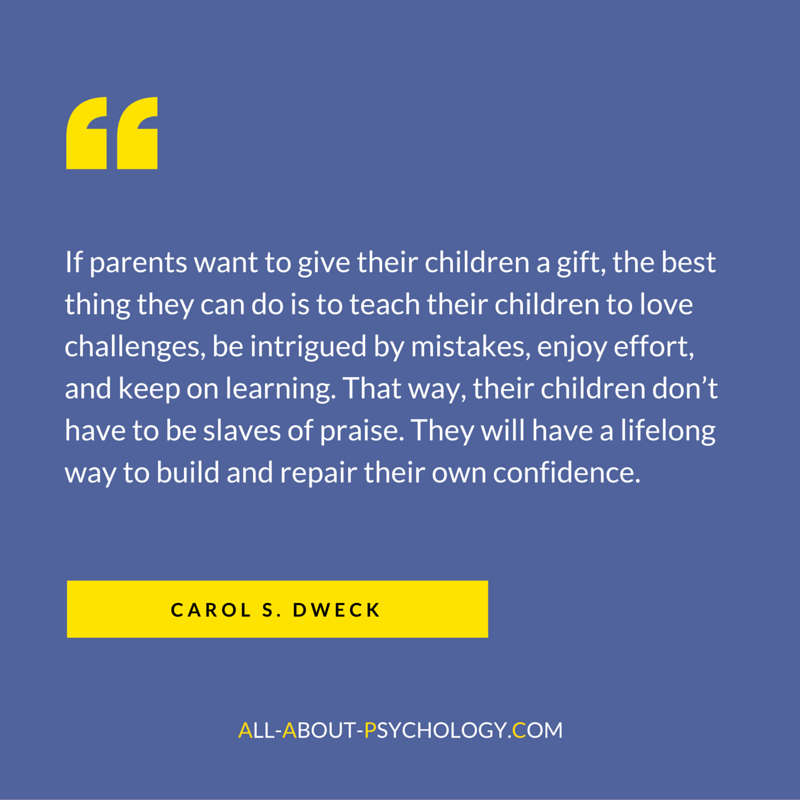Growth Mindset: Theory, Evidence,
Applications, and Criticism
Introduction
The growth mindset, a concept pioneered by psychologist Carol Dweck, has gained significant attention in psychology and education for its implications on learning, motivation, and achievement. This theory posits that individuals who believe intelligence and abilities can develop through effort, persistence, and effective strategies tend to achieve greater success than those who view intelligence as a fixed trait (Dweck, 2006). The growth mindset stands in contrast to the fixed mindset, which assumes that intelligence and talent are innate and unchangeable.
Over the past two decades, the growth mindset framework has been widely adopted in educational and professional settings, influencing interventions aimed at fostering resilience, academic achievement, and workplace success. However, despite its widespread appeal, the theory has faced scrutiny, with critics questioning its empirical robustness and the effectiveness of interventions. This article provides an in-depth examination of the theoretical foundations of the growth mindset, empirical research supporting or challenging its validity, applications in education and professional development, and ongoing debates in the field.
Theoretical Foundations of the Growth Mindset
The growth mindset is grounded in several psychological theories, particularly implicit theories of intelligence, self-theories of motivation, and neuroplasticity research.
Implicit Theories of Intelligence and Self-Theories of Motivation
Dweck’s implicit theories of intelligence framework (Dweck & Leggett, 1988) suggests that individuals hold different beliefs about intelligence:
- Entity theorists (fixed mindset) believe intelligence is a static trait.
- Incremental theorists (growth mindset) believe intelligence can be developed through effort and learning.
These implicit beliefs shape motivation, resilience, and responses to challenges. Individuals with a growth mindset are more likely to embrace challenges, persist in the face of setbacks, and see effort as a necessary component of success (Yeager & Dweck, 2012).
Neuroplasticity and Effort-Based Learning
Neuroscientific research on neuroplasticity—the brain’s ability to reorganize itself by forming new neural connections—provides biological support for the growth mindset theory. Studies have demonstrated that learning and repeated practice strengthen neural pathways (Draganski et al., 2006), suggesting that intelligence and cognitive abilities are malleable rather than fixed. This research lends credibility to the idea that effort and learning strategies can enhance cognitive capacity over time.
Goal Orientation and Growth Mindset
The growth mindset is also closely linked to goal orientation theory, which distinguishes between:
- Mastery goals (focused on learning and improvement, aligned with a growth mindset).
- Performance goals (focused on proving ability and avoiding failure, aligned with a fixed mindset).
Research suggests that a mastery-oriented approach fosters intrinsic motivation, resilience, and long-term learning, supporting the argument for cultivating a growth mindset in educational settings (Elliot & Dweck, 1988).
Empirical Research and Evidence for Growth Mindset
Several studies have examined the impact of a growth mindset on learning, motivation, and resilience.
Academic Performance and Growth Mindset Interventions
Dweck and colleagues have conducted numerous studies demonstrating that growth mindset interventions can improve academic outcomes.
- In a seminal study, Blackwell, Trzesniewski, and Dweck (2007) found that middle school students taught about the malleability of intelligence showed greater motivation and improved math performance compared to a control group.
- Yeager et al. (2019) conducted a large-scale, randomized controlled trial (RCT) with over 12,000 students, finding that a brief online growth mindset intervention led to increased high school achievement, particularly among students in lower-achieving schools.
However, meta-analyses have produced mixed findings. Sisk et al. (2018) analyzed over 400 studies and found that while growth mindset interventions modestly improved academic performance, the effects were small and inconsistent across contexts. This has led to debates about whether growth mindset interventions have been overstated in their impact.
Resilience, Grit, and Motivation
Research indicates that growth mindset fosters resilience in challenging situations. Individuals with a growth mindset tend to reframe failure as a learning opportunity rather than a reflection of their abilities.
- Paunesku et al. (2015) demonstrated that growth mindset interventions helped at-risk students improve grades in core subjects.
- Duckworth and Quinn (2009) linked growth mindset to grit, or sustained effort over time, though later research has suggested that grit and growth mindset are distinct constructs.
Over the past two decades, the growth mindset framework has been widely adopted in educational and professional settings, influencing interventions aimed at fostering resilience, academic achievement, and workplace success.
Application of Growth Mindset in Education
Early Childhood and Primary Education
Educators have implemented growth mindset strategies in classrooms to encourage perseverance and effort-based learning. Praising effort rather than innate ability (e.g., “You worked hard on this” instead of “You’re so smart”) has been shown to reinforce a growth mindset in young learners (Mueller & Dweck, 1998).
Higher Education and Growth Mindset
Universities have adopted mindset training programs to help students persist in demanding courses. Canning et al. (2019) found that instructors’ mindsets influence student outcomes, with students performing better in courses where professors embraced a growth mindset approach to learning.

Growth Mindset in Personal Development and Workplaces
The growth mindset has been widely applied beyond education, particularly in corporate environments and personal development.
- Leadership Development: Dweck (2014) suggests that leaders with a growth mindset foster more innovative and adaptable teams.
- Skill Development and Career Success: A growth mindset is associated with higher adaptability and professional growth, particularly in fast-changing industries.
Organizations like Google and Microsoft integrate growth mindset principles into their workplace cultures, emphasizing continuous learning and resilience.
Criticism and Controversies Surrounding Growth Mindset
Despite its popularity, the growth mindset theory has faced significant criticism.
Replication Concerns and Overgeneralization
- Some replication studies have failed to produce the same positive effects reported in earlier research (Li & Bates, 2019).
- Critics argue that growth mindset interventions may not work uniformly across different populations.
Effort vs. Structural Barriers
- Critics contend that growth mindset theory overemphasizes individual effort while ignoring structural barriers (e.g., socioeconomic factors, access to quality education).
- Macnamara & Burgoyne (2017) argue that effort alone is not always sufficient for success, particularly in fields requiring innate talent or extensive resources.
Practical Implications and Future Research
Given the mixed empirical evidence, how should psychology students and educators approach the growth mindset?
1. Adopt a Nuanced View: Growth mindset can be a useful tool but should not be seen as a universal solution to learning and success.
2. Combine Growth Mindset with Effective Learning Strategies: Effort must be paired with high-quality instruction, feedback, and metacognitive skills.
3. Future Research Directions: More longitudinal studies and cross-cultural research are needed to determine when and for whom growth mindset interventions are most effective.
Conclusion
The growth mindset remains one of the most influential psychological theories in education and motivation science. While research supports its benefits in fostering resilience, motivation, and academic success, criticisms regarding replication issues and overgeneralization warrant a cautious approach. As psychology students and educators, understanding both the promise and limitations of growth mindset theory is essential for applying it effectively in real-world settings.
References
Blackwell, L. S., Trzesniewski, K. H., & Dweck, C. S. (2007). Implicit theories of intelligence predict achievement across an adolescent transition: A longitudinal study and an intervention. Child Development, 78(1), 246–263. https://doi.org/10.1111/j.1467-8624.2007.00995.x
Canning, E. A., Muenks, K., Green, D. J., & Murphy, M. C. (2019). STEM faculty who believe ability is fixed have larger racial achievement gaps and inspire less student motivation in their classes. Science Advances, 5(2), eaau4734. https://doi.org/10.1126/sciadv.aau4734
Dweck, C. S. (2006). Mindset: The new psychology of success. Random House.
Dweck, C. S. (2014). The power of believing that you can improve. TED Talks. https://www.ted.com/talks/carol_dweck_the_power_of_believing_that_you_can_improve
Dweck, C. S., & Leggett, E. L. (1988). A social-cognitive approach to motivation and personality. Psychological Review, 95(2), 256–273. https://doi.org/10.1037/0033-295X.95.2.256
Elliot, A. J., & Dweck, C. S. (1988). Goals: An approach to motivation and achievement. Journal of Personality and Social Psychology, 54(1), 5–12. https://doi.org/10.1037/0022-3514.54.1.5
Li, Y., & Bates, T. C. (2019). "You can't change your basic ability, but you work at things and that's how we get hard things done": Testing the role of growth mindset on response to setbacks, educational attainment, and cognitive ability. Journal of Experimental Psychology: General, 148(9), 1640–1655. https://doi.org/10.1037/xge0000669
Macnamara, B. N., & Hambrick, D. Z. (2016). How important is deliberate practice? Reply to Ericsson (2016). Perspectives on Psychological Science, 11(3), 355–358. https://doi.org/10.1177/1745691616635614
Paunesku, D., Walton, G. M., Romero, C., Smith, E. N., Yeager, D. S., & Dweck, C. S. (2015). Mind-set interventions are a scalable treatment for academic underachievement. Psychological Science, 26(6), 784–793. https://doi.org/10.1177/0956797615571017
Sisk, V. F., Burgoyne, A. P., Sun, J., Butler, J. L., & Macnamara, B. N. (2018). To what extent and under which circumstances are growth mind-sets important to academic achievement? Two meta-analyses. Psychological Science, 29(4), 549–571. https://doi.org/10.1177/0956797617739704
Yeager, D. S., & Dweck, C. S. (2012). Mindsets that promote resilience: When students believe that personal characteristics can be developed. Educational Psychologist, 47(4), 302–314. https://doi.org/10.1080/00461520.2012.722805
Yeager, D. S., Hanselman, P., Walton, G. M., Murray, J. S., Crosnoe, R., Muller, C., Tipton, E., Schneider, B., Hulleman, C. S., Hinojosa, C. P., Paunesku, D., Romero, C., Flint, K., Roberts, A., Trott, J., Iachan, R., Buontempo, J., Man Yang, S., Carvalho, C. M., ... Dweck, C. S. (2019). A national experiment reveals where a growth mindset improves achievement. Nature, 573, 364–369. https://doi.org/10.1038/s41586-019-1466-y
Encouraging Critical Thinking: Discussion Questions for Psychology Students
Understanding the growth mindset requires more than just learning its definitions and applications; it demands critical engagement with the theory’s strengths, limitations, and implications. As psychology educators, facilitating discussions and debates around growth mindset research, interventions, and criticisms can help students develop a more nuanced perspective. Below is a series of thought-provoking questions designed to enhance understanding, critical thinking, and application of growth mindset principles in real-world contexts.
Theoretical Foundations and Core Concepts
1. Carol Dweck’s research suggests that individuals with a growth mindset are more likely to succeed. To what extent do you think intelligence and ability are truly malleable? What factors might limit the impact of a growth mindset?
2. How does the concept of neuroplasticity support the idea of a growth mindset? Are there any biological constraints to how much intelligence or skill can develop?
3. Consider the distinction between a growth mindset and a fixed mindset. Can someone have a growth mindset in one area (e.g., sports) but a fixed mindset in another (e.g., mathematics)? Why might this happen?
4. In what ways does goal-setting theory (mastery vs. performance goals) align with the principles of a growth mindset? Can a growth mindset exist without intrinsic motivation?
Empirical Evidence and Research Evaluation
5. Several meta-analyses suggest that growth mindset interventions have only small to moderate effects on academic performance. What methodological issues might influence these findings?
6. If growth mindset interventions work in some contexts but not others, what factors (e.g., socioeconomic background, teaching style, or culture) might moderate their effectiveness?
7. What are the challenges in measuring a person’s mindset? Can self-reports accurately capture whether someone truly embraces a growth mindset, or is there a risk of response bias?
8. Studies suggest that students perform better when teachers adopt a growth mindset. Why might an educator’s mindset influence their students? How can this be applied in real-world educational settings?
Criticism and Alternative Perspectives
9. Some researchers argue that growth mindset interventions are overhyped or oversimplified. Do you agree? What aspects of the theory may have been exaggerated in popular psychology and education?
10. Critics claim that growth mindset research tends to ignore systemic barriers (e.g., inequality, lack of resources). To what extent should we focus on individual beliefs vs. structural factors in education and professional development?
11. Growth mindset theory emphasizes effort and perseverance, but can excessive emphasis on effort ever be harmful? When might encouraging a growth mindset backfire?
12. Given the replication crisis in psychology, what steps should researchers take to strengthen the validity and reliability of growth mindset studies?
Application in Education and the Workplace
13. How can educators foster a growth mindset culture in the classroom without making students feel pressured or responsible for factors beyond their control?
14. Growth mindset principles have been applied in business and leadership. What might be some benefits and drawbacks of promoting a growth mindset in professional environments?
15. Consider real-world examples where a fixed mindset might be beneficial (e.g., medical diagnostics, high-stakes professions). Are there situations where a growth mindset could be counterproductive?
16. If you were designing an educational program to enhance students’ growth mindsets, what elements would you include? How would you measure its success?
These questions invite students to think critically about the growth mindset beyond its popular appeal, engaging with its scientific foundations, empirical evidence, criticisms, and real-world applications. By integrating these discussions into psychology education, instructors can help students form a balanced, evidence-based understanding of growth mindset theory and its implications.
Know someone who would be interested in reading Growth Mindset: Theory, Evidence, Applications, and Criticism
Share This Page With Them.
Go From "Growth Mindset: Theory, Evidence, Applications, and Criticism" Back To The Home Page

